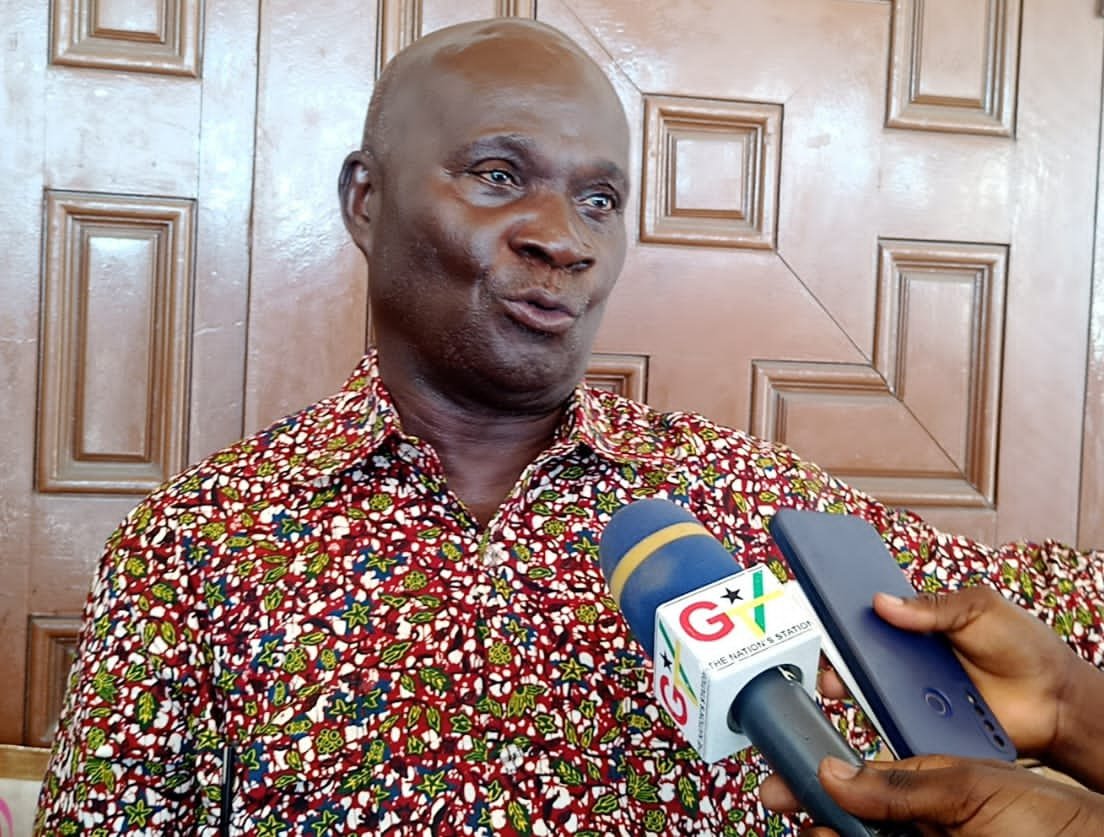
Professor Kofi Agyekum

The Dean of Linguistics at the University of Ghana, Legon, Professor Kofi Agyekum, has called for the decolonization of what he terms “Linguistic Colonialism” in Ghana and Africa in general.
He made this call when he spoke as the Special Guest Speaker at a book launch at the Christ The King Parish Hall in Cantonment, Accra, recently. The occasion was the launch of the Akwapim version of the 1992 Ghana Constitution, translated by Lawyer Kwasi Opare, a native of Akwapim.
 The learned Professor argued that, much as Ghana and some African countries have liberated themselves from political colonization, these countries continue to use alien languages rather than their mother tongue in all aspects of their lives.
The learned Professor argued that, much as Ghana and some African countries have liberated themselves from political colonization, these countries continue to use alien languages rather than their mother tongue in all aspects of their lives.
This, he said, is not correct, to say the least. He postulated that language is the purest manifestation of one’s culture. Language is used to transmit socio-cultural and behavioral tenets of people, and it’s used to preserve cultural values and heritage, as well as to simplify numerous activities in the lives of a people.
He lamented that as Ghanaians, who have been independent since 1957, we are still held in bondage by the use of someone else’s language as a means of communication and transaction. “This behavior has led to the fact that we esteem the foreign language far above our mother tongue, making us live with artificial pride and ego.”
He stated that speaking someone’s language doesn’t necessarily make you a better scholar, as some people naively believe. “God knew why he made us the way we are, and our mother tongue is better than any other language, so we must be proud of speaking our local dialects rather than rattling the foreign languages we are so glued to. We must use our local language in all transactions: trade, education, science, mathematics, technology, finance, media, administration, etc. It’s by doing this that our indigenous languages will be preserved and treasured. I shudder to advocate that if we are not very careful, we will lose our own dialects in the not-too-distant future because we communicate with our children in a foreign language, and this is not the best,” he decried.
He grieved that as a result of language imperialism, all our books, documents, gatherings, meetings, functions, and engagements have been in a foreign language to the detriment of the less educated or the uneducated majority who may be wiser than the elites.
He repeatedly called on the authorities to decolonize and break the neck of this obnoxious system of ‘LANGUAGE IMPERIALISM,’ even if it demands a national dialogue. Touching on the translated Constitution of 1992 into Akwapim Twi, he praised the translator for a significant academic breakthrough.
He intimated that countries like Bolivia, South Africa, and Tanzania have done a similar thing, and this has tremendously impacted the country’s political exercise, understanding, and participation.
He reasoned that the day’s occasion would forever be remembered as a day of Akan studies and literacy upliftment. The day marks a jubilant day when non-English speakers would also be part of our constitutional dispensation.
He praised the translator unceasingly for his historic endeavor in bringing the constitution closer to the masses. Despite it being in Akwapim Twi, it can benefit all Akan language speakers, covering about 44% of the country’s population, which includes 9 out of the 16 regions of Ghana, and even non-Akans who understand the Akan language across the country.
He also praised the translator for taking on this bold, arduous task that took him eight long years to complete. “Elsewhere, this would have been a national event because it’s an extremely great achievement, and the translator deserves a national award for his effort. We all have to celebrate the trailblazer for this commendable feat; in fact, Mr. Kwasi Opare Esq. must be rewarded and celebrated by the state,” he postulated.
The Professor appealed to the traditional leaders, academia, duty bearers, students, the legal fraternity, politicians, and all well-meaning Ghanaians to patronize and use the book in their daily lives. An auction of the first 20 copies of the book yielded GHC25,000. The chairman for the occasion was Nana Ansah Kwao, the chief of Adumasa in the Akwapim Traditional Area, who also lauded the work of Lawyer Kwasi Opare for his wonderful piece.




